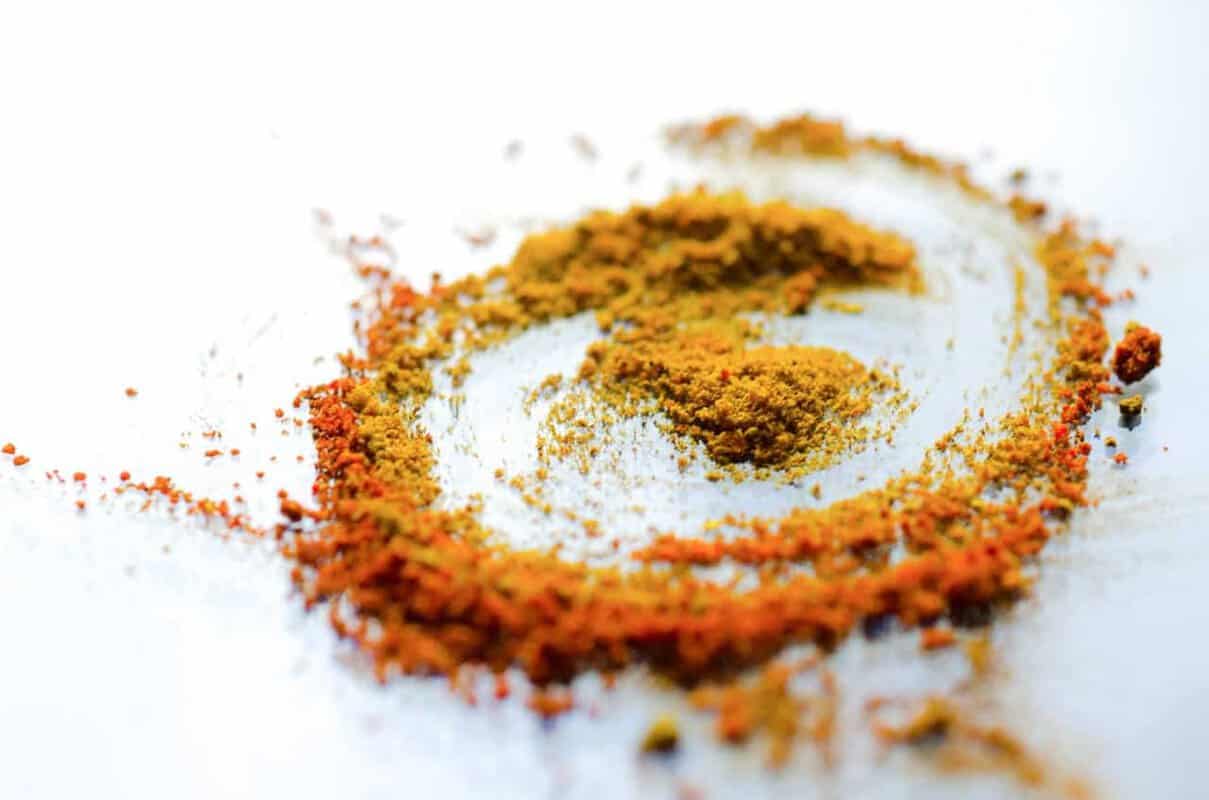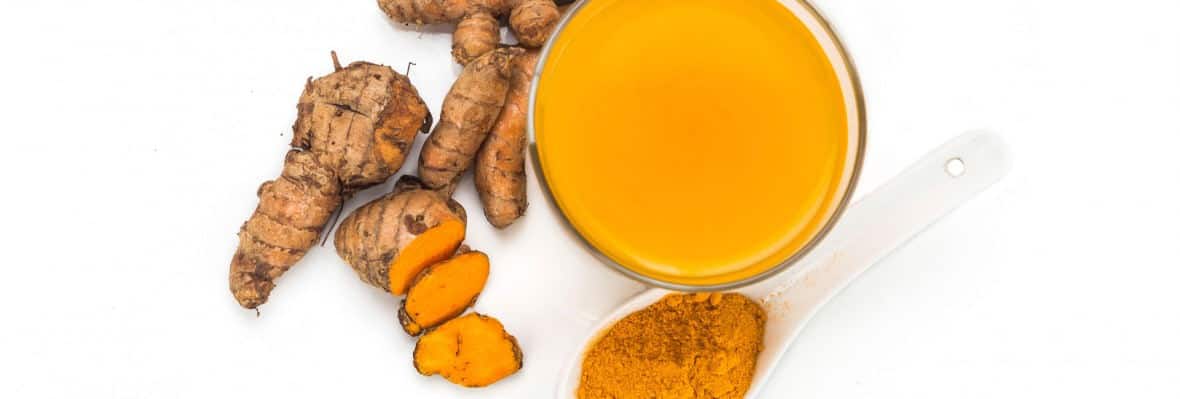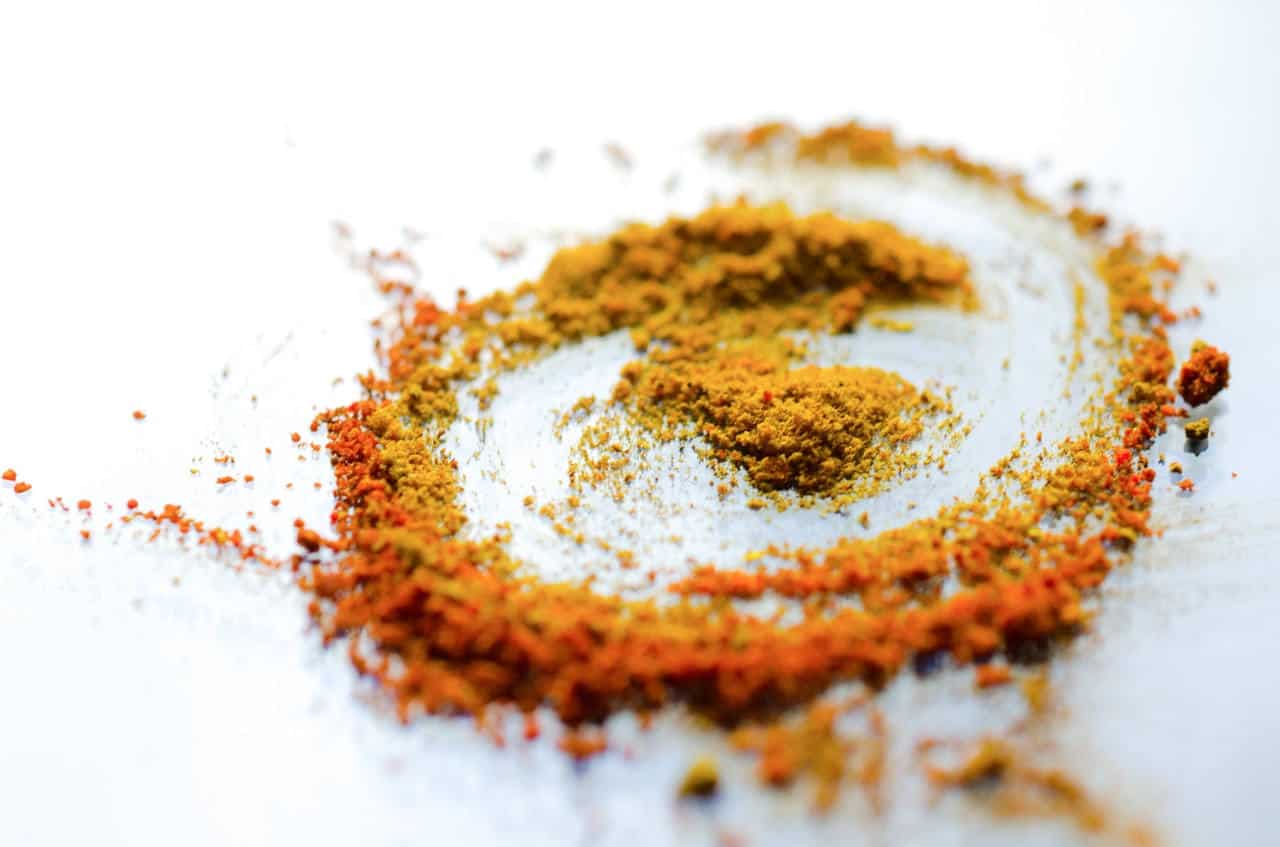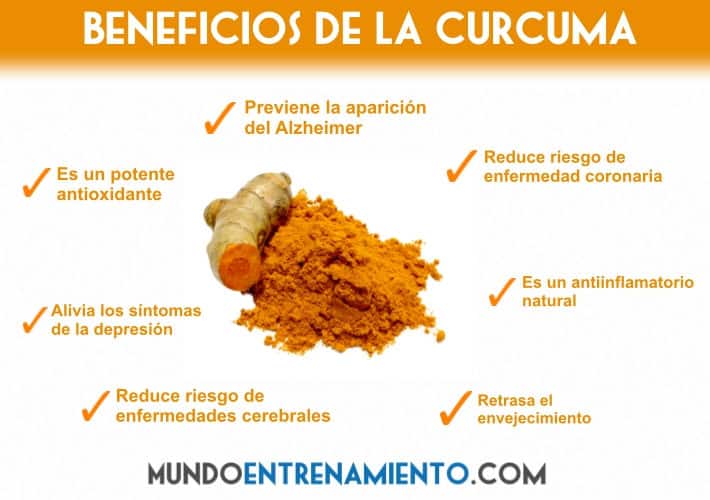The benefits of turmeric have been known for many years by some civilizations. In India and Southeast Asia, where the plant originates (although it is now cultivated in many other warm and humid regions).
It has been used for over 4,000 years in gastronomy and also in medicine for various diseases. Learn much more about turmeric in the following article.
Turmeric may be the most effective nutritional supplement that exists. Many scientific studies show benefits for our body. Below we show you the 10 most relevant benefits of turmeric based on scientific evidence:
10 benefits of turmeric
Below we break down the 10 scientifically proven benefits of turmeric:
Powerful medicinal properties
Science has begun to support what was said in India thousands of years ago regarding its medicinal properties and the compounds it contains (1). These compounds are called curcuminoids, the most important of which is curcumin.
Curcumin is the main active ingredient in turmeric and has powerful anti-inflammatory effects and is also a very potent antioxidant. However, the curcumin content of turmeric is not that high… it is around 3% (2).
In most studies on this herb, turmeric extracts containing mainly the so-called curcumin are used, with doses generally exceeding 1 gram per day. It would be very difficult to reach these levels simply by providing turmeric only with normal food.
Therefore, to experience effective effects, it is necessary to take some extract that contains significant amounts of curcumin.
A natural anti-inflammatory compound
As we have already discussed in other occasions in Mundo Entrenamiento, inflammation is a process that helps our body fight invaders and plays a fundamental role in damage repair. Without the inflammation process, pathogens like bacteria could easily take over our bodies.
Short-term inflammation is beneficial, however, if it lasts too long, it can cause a problem. Curcumin has a great anti-inflammatory power.
So much so that it has an efficacy similar to some anti-inflammatory drugs (3). Therefore, one of the benefits of turmeric is that it is a bioactive substance that fights inflammation at the molecular level (4, 5, 6).
Powerful antioxidant
Oxidative damage is one of the mechanisms behind aging as we addressed in previous publications. Curcumin is a powerful antioxidant that can neutralize free radicals due to its chemical structure (7, 8).
Additionally, another of the benefits of turmeric is that it increases the activity of the body’s own antioxidant enzymes (9, 10, 11).
Reduces the risk of brain diseases
Animal studies have identified that BDNF is a crucial factor mediating beneficial effects in the human brain (12).
BDNF is a member of the neurotrophin family that plays an important role in various aspects of adult brain development: brain plasticity, neurogenesis, synaptic plasticity, and cognitive functions (13).
Turmeric can increase brain levels of BDNF according to several studies (14, 15). By achieving this, it can be effective in slowing the progression of certain brain diseases (16).
Benefits of turmeric: it may reduce the risk of heart disease
Heart disease is the leading cause of death in the world. Another benefit of turmeric would be that it can help us reverse many steps in the heart disease process accompanied by an appropriate physical activity program.
When it comes to the heart, turmeric seems to improve endothelial function. Some studies show that they are as effective as some drugs designed for this function (17, 18).
In another scientific study, 121 patients underwent coronary artery bypass surgery. They were randomized to placebo and another group taking 4 grams of turmeric per day, a few days before and after the operation. The results showed that the group that took curcumin had a 65% lower risk of having a heart attack (19).
May help prevent cancer
Researchers have extensively studied curcumin as a beneficial herb in cancer treatment. Studies have shown that it can reduce angiogenesis (growth of new blood vessels in tumors), metastasis (spread of cancer), and contribute to the death of cancer cells (20).
Some other studies have shown that curcumin can prevent cancer cells from growing and inhibit the growth of certain tumors in animals (21, 22).
May be useful in preventing and treating Alzheimer’s
Alzheimer’s is the most common neurodegenerative disease in the world, currently without an effective treatment. It is known that inflammation and oxidative damage play an important role in Alzheimer’s. And as we have already seen, curcumin has beneficial effects on both.
However, a key feature of Alzheimer’s disease is the accumulation of protein tangles called amyloid plaques. Studies show that curcumin can help clear these plaques (23). However, to draw firm conclusions, further research is needed.
Patients with arthritis respond very well to turmeric supplementation
Arthritis is a common pathology in Western countries. Since curcumin is a potent anti-inflammatory, it could help with arthritis and would be another of the benefits of turmeric. Several studies show that this can be beneficial.
In a study with rheumatoid arthritis, curcumin was even more effective than an anti-inflammatory drug (24). Many other studies have examined the benefits of turmeric on arthritis and noted improvements in various symptoms (25, 26).
Shows beneficial effects against depression
Curcumin has shown certain positive effects for treating depression. According to a study conducted in 2014 (27), curcumin is as effective as taking an antidepressant like Prozac.
Additionally, there is some evidence in the scientific literature showing that curcumin can increase serotonin and dopamine neurotransmitters in the brain (28, 29).
“Turmeric is as effective as Prozac for treating depression”
May delay aging and combat age-related chronic diseases
If curcumin can help prevent heart disease, cancer, or Alzheimer’s… then it has a direct relationship in terms of beneficial effects on longevity. For this reason, turmeric has become very popular as an anti-aging supplement (30).
Conclusions about the benefits of turmeric
As we see, the benefits of turmeric are numerous. This spice used for thousands of years in India and Southeast Asia is increasingly popular for the following health benefits:
- Turmeric contains curcumin, a substance with anti-inflammatory and antioxidant properties.
- Curcumin increases the levels of the BDNF hormone in the brain, promoting the growth of new neurons and combating various degenerative processes that occur in it.
- Curcumin seems to improve endothelial function and therefore play an important role in heart diseases.
- Curcumin leads to certain molecular-level changes that could help prevent cancer.
- Several studies show that turmeric can treat arthritis symptoms, and in some cases, be more effective than drugs.
- A study with 60 depressed patients showed that turmeric was as effective as the drug in relieving depression symptoms (27).
However, scientific literature must continue to advance and investigate to establish more reliable and rewarding conclusions. But in the reviewed studies, the benefits of turmeric are numerous.
Bibliographic references
- Nagpal, M, Sood, S. (2013). Role of curcumin in systemic and oral health: an overview. J Nat Sci Biol Med 4(1): 3- 7.
- Tayyem, R.F., Health, D.D., Al-Delaimy, W.K., Rock C.L. (2006). Curcumin content of turmeric and curry powders. Nutr Cancer, 55(2):126-31.
- Jurenka, J.S. (2009). Anti-inflammatory properties of curcumin, a major constituent of Curcuma longa: a review of preclinical and clinical research. Altem Med Rev, 14(2): 141-53.
- Chainani, W. N. (2003). Safety and anti-inflammatory activity of curcumin: a component of turmeric (Curcuma longa). J Altern Complement Med 9(1): 161-8.
- Ajay, G., Boland R., Dharan P. (2001). Specific inhibition of cyclooxygenase-2 (COX-2) expression by dietary curcumin in HT-29 human colon cancer cells, Cancer Letters, 172(2): 111-118.
- Bharat, B. Aggarwai, Kuzhuveli, B., Harikumar (2009). Potential therapeutic effects of curcumin, the anti-inflammatory agent, against neurodegenerative, cardiovascular, pulmonary, metabolic, autoimmune and neoplastic diseases. Int Journ Of Bio Cell Biology, 41(1):40-59.
- Menon V. P., Sudheer A.R. (2007). Antioxidant and anti-inflammatory properties of curcumin. Adv Exp Med Biol 595:105-25.
- Ross C., Melinda R. et al. (2000). On the Antioxidant Mechanism of Curcumin: Classical Methods Are Needed To Determine Antioxidant Mechanism and Activity. Org Letters, 2(18): 2841-2843.
- Rakhi, A., Sudhir, K., Jai Raj Behari. (2010). Detoxification and antioxidant effects of curcumin in rats experimentally exposed to mercury. Journ of App Toxicology 30(5): 457-468.
- Fatih Sakin, Gafari T., et al. (2013). Protective effects of curcumin on antioxidant status, body weight gain, and reproductive parameters in male rats exposed to subchronic 2,3,7,8-tetrachlorodibenzo-p-dioxin, Jour Toxic & Env Chem 95(6):1019-29.
- Biswas, SK, McClure, D. Jimenez LA, Megson IL, Rahman, I. (2005). Curcumin induces glutathione biosynthesis and inhibits NF-kappaB activation and interleukin-8 release in alveolar epithelial cells: mechanism of free radical scavenging activity. Antioxid Redox Signal 7(1): 32-41.
- Cotman CW, Berchtold NC. Exercise(2002): a behavioral intervention to enhance brain health and plasticity. Trends Neurosci: 25: 295–301.
- Hofer MM, Barde YA.( 1988): Brain-derived neurotrophic factor prevents neuronal death in vivo. Nature: 331261–262.
- Ying, X. Baoshan K. et al. (2006). Curcumin reverses the effects of chronic stress on behavior, the HPA axis, BDNF expression and phosphorylation of CREB. Brain Research 1122(1): 56-64.
- Hurley, L,, Akinfiresoye, L., et al. (2013). Antidepressant-like effects of curcumin in WKY rat model of depression is associated with an increase in hippocampal BDNF. Behavioural Brain Research, 239(15):27-30.
- Suzhen Dong, Quingwen, Z. et al. (2012). Curcumin Enhances Neurogenesis and Cognition in Aged Rats: Implications for Transcriptional Interactions Related to Growth and Synaptic Plasticity. Jour Pl One, 16.
- Akazawa, N. Choi Y, et al. (2012). Curcumin ingestion and exercise training improve vascular endothelial function in postmenopausal women. Nutr Res, 32(10):795-9.
- Usharani, P. Mateen, A.A., et al. (2008). Effect of NCB-02, atorvastatin and placebo on endothelial function, oxidative stress and inflammatory markers in patients with type 2 diabetes mellitus: a randomized, parallel-group, placebo-controlled, 8-week study. Drugs R D, 9(4): 243-50.
- Wongcharoen W., Jai-Aue, S., Phrommintikul, A., et al. (2012). Effects of curcuminoids on frequency of acute myocardial infarction after coronary artery bypass grafting. Am J Cardiol, 110(1): 40-4.
- Jayaraj, R., Sahdeo Prasad y Bharat, B. (2009). Curcumin and Cancer Cells: How Many Ways Can Curry Kill Tumor Cells Selectively? AAPS Journal, 11(3): 495-510.
- Toshihiko, K., Lubet, R., Vernon, E. et al. (1999). Chemopreventive Effect of Curcumin, a Naturally Occurring Anti-Inflammatory Agent, during the Promotion/Progression Stages of Colon Cancer. Carcinogenesis.
- Bar-Sela, G., Epelbaum, R., Schaffer, M. (2010). Curcumin as an Anti-Cancer Agent: Review of the Gap Between Basic and Clinical Applications. Current Med Chem, 17(3): 190-197. benefits of turmeric, benefits of turmeric, benefits of turmeric,
- Tsuyoshi, H., Kenjiro, O., Yamada, M. (2010). REVIEW: Curcumin and Alzheimer’s Disease. CNS Neur & Ther. 26(5): 285-297. benefits of turmeric, benefits of turmeric, benefits of turmeric, benefits of turmeric, benefits of turmeric,
- Chandran, B., Goel, A. (2012). A randomized, pilot study to assess the efficacy and safety of curcumin in patients with active rheumatoid arthritis. Phytother Res, 26(11):1719-25.
- Belcaro, G., Cesarone M.R., Dugall, M. et al. (2010). benefits of turmeric, Product-evaluation registry of Meriva®, a curcumin-phosphatidylcholine complex, for the complementary management of osteoarthritis. Panminerva Med 52(2): 55-62.
- Deodhar, S.D., Sethi, R., Srimal R.C. (1980). Preliminary study on antirheumatic activity of curcumin (diferuloyl methane). Indian J Med Res 71:632-4.
- Kulkarni, S.K., Ashish, D. and Kumar K. (2009). Potentials of Curcumin as an Antidepressant. The Scientific World Journal. 9(1):1233-1241.
- Shrinivas, K, Mohit K., Bishnoi, M. (2008). Antidepressant activity of curcumin: involvement of serotonin and dopamine system. Psychopharmacology. 201: 435.
- Ying Xu, Bao-Shan, K., et al. (2005). The effects of curcumin on depressive-like behaviors in mice. European Journal of Pharmacology. 518(1): 40-46.
- Sikora, E., Scapagnini, G., Barbagallo, M. (2010). Curcumin, inflammation, ageing and age-related diseases. Immunity & Ageing. 7(1).




